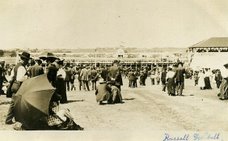 Today we feature a special column by Diane Houdek, K-12 guidance counselor at Dorchester Public Schools, who offers tips on how to help slow the spread of the coronavirus (COVID-19). What makes her advice unique is that she has a niece who is teaching in South Korea -- an area first hit with the virus. Her city is now deemed "clean," which is amazing considering that particular city is the size of Grand Island.
Today we feature a special column by Diane Houdek, K-12 guidance counselor at Dorchester Public Schools, who offers tips on how to help slow the spread of the coronavirus (COVID-19). What makes her advice unique is that she has a niece who is teaching in South Korea -- an area first hit with the virus. Her city is now deemed "clean," which is amazing considering that particular city is the size of Grand Island.
Note that Diane did add a disclaimer -- she is simply passing along some of what she has researched.
She notes that her niece has elected to stay in South Korea to teach another year, as she feels safer there than coming back to a new outbreak. The tips she shared are working in South Korea.
-----------
As part of my duties as the school counselor I was tasked to
come up with some tips to help ease the stress of the unknown. I have always
found that talking to someone who has a direct experience with something can be
helpful. The following is the result of
my research.
DISCLAIMER: My
niece who is teaching in South Korea shared the following information with me.
She lives in a city the size of Grand Island. They have NO cases of the virus
although she lives in an area of origin of the disease. Cases in South Korea
showed up in January, right at the end of their school year. Students are still not in session. However,
by following the tips below South Korea has significantly decreased the number
of new cases from 800 per day to around 74 in her region. People in her city
began following the tips below on February 16 and keeping a city of 100,000
diseases free for over a month is amazing.
The key to
their success is that EVERYONE follows the tips.
Some prevention tips started out as individual choice but as
the country found out what worked things were mandated. If that happens here it
will seem like and over-reaction but she said not to panic. If things are
mandated…it just means that what they want works. Please keep an open mind. In some ways we are more fortunate than some
countries because we aren’t the first to get the virus. At this point in time
things are getting under control in South Korea and she said she feels safer
there because of the protocols, which are followed by EVERYONE. That is the key
to prevention….EVERYONE needs to follow the tips as best as they can. I know I
repeated that several times but my niece also repeated it several times.
Here are the tips they are using successfully to prevent the
spread of COVID-19.
· * Stay home! This means EVERYONE. The pandemic hit there
at the end of their school year. I know it might seem difficult for students to
stay home. For parents, making your kids stay home will be one of your biggest
challenges. People, especially healthy teens, feel good and that ‘s the
problem. She said so many people have the corona virus and are asymptomatic or
show no signs. The asymptomatic ones are the most dangerous folks to have out
on the street. You can have it and be spreading it to others and don’t know it.
At her school they reminded students that they can still communicate using snap
chat, phones, zoom, Face time, and even video games. Side note on this: ONE person in South Korea is
responsible for 6,000 cases. So if you think it won’t matter if you go out
because you feel fine, think again. A woman they call Patient 31 led to those 6000
cases. She felt okay but refused the free testing. She went to church and had
close contact with people. She had a car accident later that day and they found
the virus when treating her. Again, she has been linked to over 6,000 cases.
· * If you do need to go out,
wash your coats and pants upon returning. If you had on mittens wash those too. Laundry
detergent and a low heat will kill the virus.
· * Clean your phone! Use Alcohol wipes or
sanitize with a spray or rubbing alcohol on a tissue. The virus can live 96
hours on a phone.
· * Take your temperature twice
a day. Ninety percent of cases are
linked to a temperature. If you have been to a bigger city or traveled
out of the state take your temperature more often. Early detection is key to
stopping the spread and helps with the success of treating the symptoms. Side
note: She said they have checkpoints in and out of her city where they stop you
and take your temperature and test on the spot if you have a temp. Most stores
make you take a temperature when you go in. Yes, it does seem harsh and a
violation of rights but it is for the good of ALL. Train stations in her city
have thermal heat detectors in place to catch potential carriers. Again, that
may seem odd but has proven affective in the prevention of the disease.
· * Wear a mask. This may contradict what you have heard on the
news. However, they do work. They work so well that in South Korea it is
against that law to not wear a mask. Some will tell you that if you wear one
and come in contact with some who has it that you could be more at risk because
you trap the virus. However, they have found that if ALL wear masks, the sick
keep the disease to themselves and the healthy have an extra barrier. Her exact
words were: If masks didn’t work the government wouldn’t spend as much time and
money mandating them.” In her city the schools had to turn in all of their
masks to the government. The government now disperses two masks per week to
each citizen based on the end digits of their birth year. Masks can be picked
up at post offices or pharmacies. This
ensures all have protection. She said that was one of the first federal
mandates that went out.
· *
More on masks. I know they can be hard to find but there are
several tutorials on YouTube showing how to make masks. Some don’t even require
a sewing machine. If you do have a mask of the paper type she said they told
them they can be put in the sun for 2-3 hours and sanitized that way.
· *
Limit group size. The US guidelines are saying
groups of 10 or less. In South Korea that number is no more than four.
· *
Lastly, what you choose to
do does matter. We all have free will to do what we want. Please consider others in
your decisions. If you must work, be cautious. Wash those hands, phones and
clothing items. If at all possible stay home for the two weeks. If you don’t
get it and follow the tips you will have a better chance of staying healthy and
keeping those around you healthy. Remember, each time you put yourself in a
situation to be exposed the incubation period starts again.
 Today, Gov. Pete Ricketts announced that the state’s sixth and seventh COVID-19 related Directed Health Measures (essentially state-issued quarantines) include Adams, Buffalo, Clay, Dawson, Franklin, Gosper, Harlan, Kearney, Nuckolls, Phelps, and Webster counties. They will be in effect beginning today at 10 p.m. and will last until May 11, unless renewed.
Today, Gov. Pete Ricketts announced that the state’s sixth and seventh COVID-19 related Directed Health Measures (essentially state-issued quarantines) include Adams, Buffalo, Clay, Dawson, Franklin, Gosper, Harlan, Kearney, Nuckolls, Phelps, and Webster counties. They will be in effect beginning today at 10 p.m. and will last until May 11, unless renewed.



























































